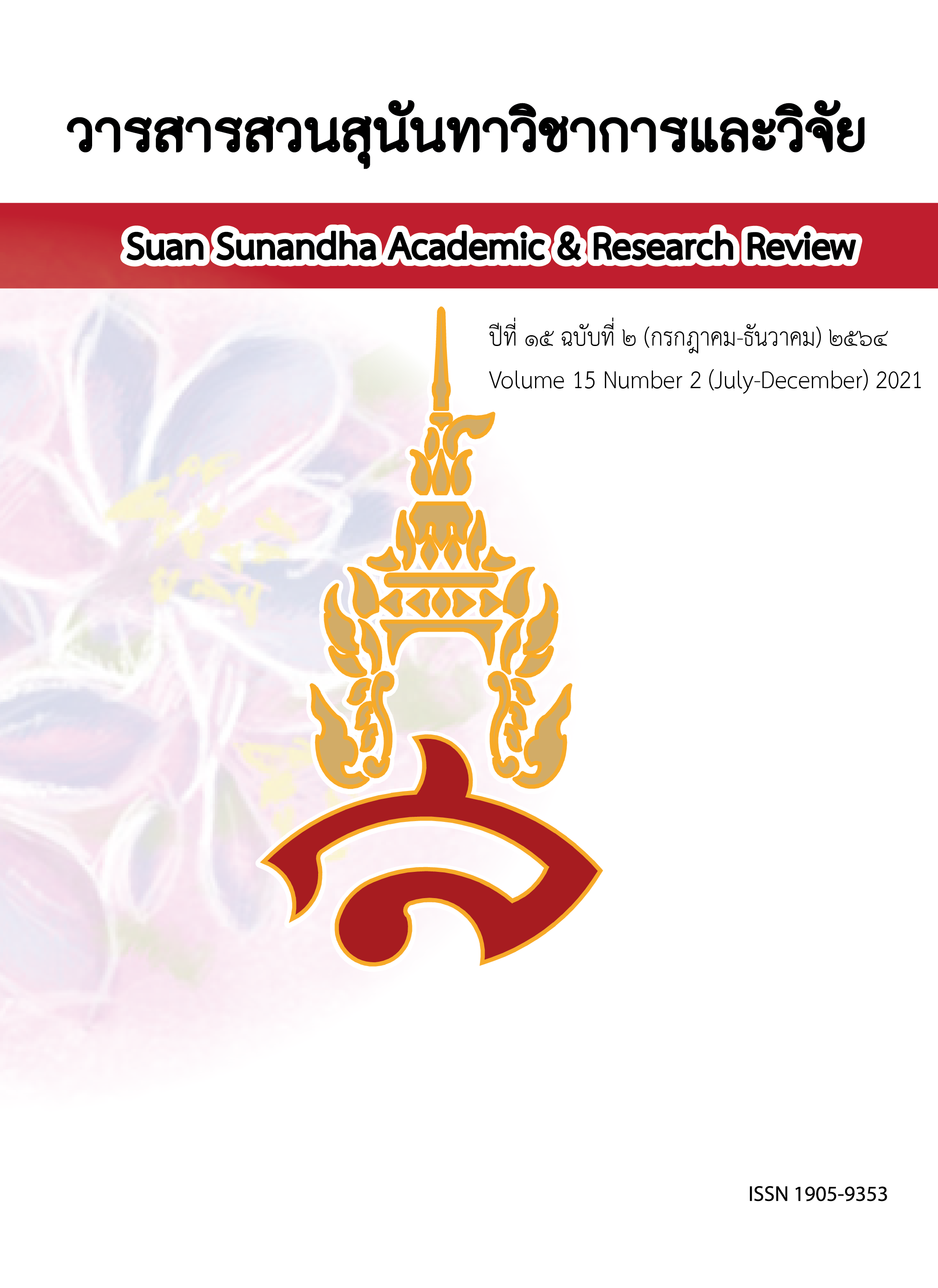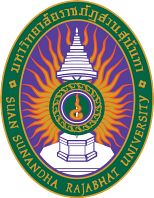การจัดสวัสดิการให้กับนักกีฬาโอลิมปิกของประเทศไทย
คำสำคัญ:
การจัดสวัสดิการ, นักกีฬาโอลิมปิก, แนวทางบทคัดย่อ
การวิจัยนี้ศึกษาสถานภาพความเป็นอยู่ปัจจุบันของนักกีฬาโอลิมปิก เพื่อจัดทำแนวทางในการจัดสวัสดิการให้กับนักกีฬาโอลิมปิกของประเทศไทย กลุ่มตัวอย่างที่ใช้เป็นผู้บริหารระดับนโยบาย ของสมาคมกีฬาแห่งประเทศไทยที่มีนักกีฬาเข้าร่วมการแข่งขันกีฬาโอลิมปิก และองค์กรกีฬาที่เกี่ยวข้องกับการส่งนักกีฬาเข้าร่วมการแข่งขันกีฬาโอลิมปิก จำนวน 20 คน และนักกีฬาที่เข้าร่วมการแข่งขันโอลิมปิกเกมส์ จำนวน 77 คน ได้มาโดยการคัดเลือกแบบเฉพาะเจาะจง (purposive sampling) เครื่องมือที่ใช้ในการวิจัย เป็นแบบสัมภาษณ์และแบบสอบถาม ที่ผู้วิจัยสร้างขึ้นโดยมีลักษณะเป็นอัตราส่วนประมาณค่า (rating scale) 4 ระดับ ตรวจสอบคุณภาพของเครื่องมือโดยการคำนวณค่าความสอดคล้อง IOC (Index of Item Objective Congruence) เพื่อหาค่าความแม่นตรงเชิงเนื้อหา (content validity) และหาค่าความเชื่อมั่น (reliability) โดยวิธีของครอนบาช (Cronbach' s Alpha Correlation Coefficient) วิเคราะห์ข้อมูลเชิงคุณภาพโดยวิธีวิเคราะห์เนื้อหา (content analysis) และวิเคราะห์ข้อมูลเชิงปริมาณ โดยใช้สถิติค่าความถี่ (frequency) ค่าเฉลี่ย (mean) ส่วนเบี่ยงเบนมาตรฐาน (standard deviation) และค่าร้อยละ (percentage) ผลการวิจัยพบว่า นักกีฬาโอลิมปิกไทยยังไม่มีความมั่นคงในชีวิตเท่าที่่ควร มีความต้องการการส่งเสริมสวัสดิการเพื่อบำรุงขวัญกำลังใจของนักกีฬาและสร้างความมั่นคงในชีวิต ทั้งผู้บริหารองค์กรกีฬาและนักกีฬามีความต้องการสวัสดิการสำหรับนักกีฬาโอลิมปิกอยู่ในระดับมาก ไปในทิศทางเดียวกันทั้ง 5 ด้าน ตามลำดับความสำคัญ คือ ด้านอาชีพ ด้านการศึกษา ด้านความมั่นคงและปลอดภัย ด้านสุขภาพอนามัย และด้านการให้คำปรึกษาและแนะนำ สำหรับแนวทางในการจัดสวัสดิการให้นักกีฬาโอลิมปิกของประเทศไทยทั้ง 5 ด้าน เพื่อเป็นไปอย่างมีประสิทธิภาพและเกิดผลเป็นรูปธรรม รัฐบาลควรจัดตั้งหน่วยงานที่รับผิดชอบวางนโยบายและแนวทางการปฏิบัติในการจัดสวัสดิการให้กับนักกีฬาโอลิมปิกโดยตรง และมีการประสานงานอย่างใกล้ชิดกับองค์กรทั้งภาครัฐและภาคเอกชนในการให้อาชีพที่มั่นคงแก่นักกีฬาภายหลังเลิกเล่นกีฬา ดูแลเรื่องการประกันสุขภาพ สร้างความมั่นคงและความปลอดภัย เพื่อให้นักกีฬาโอลิมปิกไทยได้ใช้ชีวิตอยู่ในสังคมอย่างมีความสุข มีคุณภาพ โดยไม่เป็นภาระของครอบครัวของสังคมและของประเทศชาติ
เอกสารอ้างอิง
Bridgman, T., Cummings, S., & Ballard, J. (2019). Who built Maslow’s pyramid? A history of the creation of management studies’ most famous symbol and its implications for management education. Academy of Management Learning & Education, 18(1), 81-98.
Gates, L. B., Hughes, A., & Kim, D. H. (2015). Influence of staff attitudes and capacity on the readiness to adopt a career development and employment approach to services in child welfare systems. Journal of Public Child Welfare, 9(4), 323-340.
Henry, I. (2013). Athlete development, athlete rights and athlete welfare: A European Union perspective. International Journal of the History of Sport, 30(4), 356-373.
Heprakhon, P., & Naipinit, A. (2017). The relationship between work welfare and performance of employees Government Housing Bank of the North-Eastern. MBA-KKU Journal, 10(1), 42-58. (in Thai)
International Olympic Committee. (2005). Athletes’ kit IOC Athlete career programme. Lausanne: Switzerland.
International Olympic Committee. (2015). The IOC annual report: Credibility, Sustainability and Youth. Lausanne: Switzerland.
Khamhom, R. (2014). Social welfare and Thai society (4th ed.). Bangkok: Thammasat University Press. (in Thai)
Ministry of Social Development and Human Security. (2007). Regulations of the Ministry of Social Development and Human Security: The payment of subsidies to help people affected by social problems in an emergency B.E. 2547. Retrieved January 9, 2021, from http://law.m-society.go.th. (in Thai)
Mitic, D. (2009). The role of university sport in education and society. In FISU Conference 25th Universiade Proceedings (pp. 147-149). University of Belgrade, Serbia.
Ngammongkolwong, S., & Nakharacruangsak, S. (2017). current situation and demands of information system for giving advice to undergraduate students of private universities of Thailand. Journal of Humanities and Social Sciences Thonburi University, 11(24), 81-89. (in Thai)
Panichphan, S. (1991). Fundamentals of social work. Bangkok: Thammasat University Press. (in Thai)
Peachpunpisal, C. (2015). Caregiver in Parkinson’s disease patient. Journal of Phrapokklao Nursing College, 26, 111-116. (in Thai)
Petchsawang, P., Srisuk, S., Kumpalanuwat, D., & Veeravutthiphol, S. (2017). Managing employee benefits in organizations. Business Review Journal, 9(2), 54-67. (in Thai)
Rogge, J. (2002). International Athletic Conference 2002. Lausanne: Switzerland.
Siricha, W. (2020). Health status and expectation to the case policy for elderly of the elderly in Songkhla Province. Academic Journal of Mahasarakham Provincial Public Health Office, 4(8), 48-60. (in Thai)
Srisa-san, B. (2017). Preliminary research (10th ed.). Bangkok: Suveeriyasan. (in Thai)
Sriyabyaya, A. (2014). Sports management in the educational institute for the development of national sports (Doctoral dissertation). Kasetsart University, Bangkok. (in Thai)
Sriyabyaya, A., Samahito, S., & Swatdikiat, P. (2015). Managing sport in educational institutes for national sports development. ABAC Journal, 35(2), 32-46.
Sutathon, B. (2014). Opinions on welfare of employees of small Tannery industry at 30th km. Sukumvit Road Samut Prakan Province (Master’s thesis). Dhonburi Rajabhat University, Bangkok. (in Thai)
ดาวน์โหลด
เผยแพร่แล้ว
รูปแบบการอ้างอิง
ฉบับ
ประเภทบทความ
สัญญาอนุญาต
บทความที่ได้รับการตีพิมพ์เป็นลิขสิทธิ์ของ สถาบันวิจัยและพัฒนา มหาวิทยาลัยราชภัฎสวนสุนันทา
ข้อความที่ปรากฏในบทความแต่ละเรื่องในวารสารวิชาการเล่มนี้เป็นความคิดเห็นส่วนตัวของผู้เขียนแต่ละท่านไม่เกี่ยวข้องกับมหาวิทยาลัยราชภัฎสวนสุนันทา และคณาจารย์ท่านอื่นๆในมหาวิทยาลัยฯ แต่อย่างใด ความรับผิดชอบองค์ประกอบทั้งหมดของบทความแต่ละเรื่องเป็นของผู้เขียนแต่ละท่าน หากมีความผิดพลาดใดๆ ผู้เขียนแต่ละท่านจะรับผิดชอบบทความของตนเองแต่ผู้เดียว






